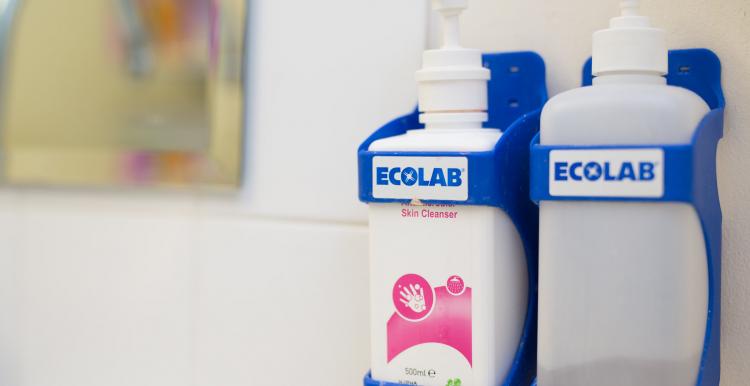What is in the Government’s coronavirus (COVID-19) bill?

The backstory
The Government has introduced emergency legislation to help it respond to coronavirus. Opposition parties have been involved in drawing up the bill, so it is expected to be fast-tracked through Parliament and is likely to take effect from the end of March 2020.
The legislation will be time-limited – for two years – and not all these measures will come into force immediately. The bill allows the four UK Governments to switch on these new powers when they are needed and to switch them off again once they are no longer necessary.
The bill contains measures in five key areas, which form part of the Government’s action plan in response to the outbreak of COVID-19. We look at what the bill contains and have highlighted the issues that will be most relevant to local Healthwatch services.
1. Increasing the available health and social care workforce
Several measures are aimed at increasing the numbers of frontline health and care workers.
What does this mean?
A new scheme will allow workers to take special leave from their regular jobs and volunteer for the frontline response in blocks of two, three, or four weeks. The UK Government will cover the cost of earnings for the period that someone is volunteering instead of working their regular job.
Other measures include:
- New categories of people will be able to register as regulated health professionals and deliver essential health and care services to respond to coronavirus. This will likely include nurses, midwives, paramedics, recently retired staff and final year medical students.
- Recently retired social workers will be able to re-register with regulators and return to the workforce.
- Provide indemnity for any clinical negligence liabilities for staff dealing with the coronavirus response.
- Allow recently retired staff to return to work without restrictions on hours or losses to their pensions.
2. Easing the burden on frontline staff
These measures are aimed at reducing admin tasks for key workers at this time.
What does this mean?
If implemented, these measures are likely to affect what people can expect from local mental health and social care services.
Proposed changes to mental health legislation include:
- Allow detention of patients under the Mental Health Act based on just one doctor’s opinion, rather than the two opinions that are currently required.
- Under extraordinary circumstances extension or removal of time limits on detention under the Mental Health Act.
Proposed changes to social care legislation include:
- Hospitals will be allowed to delay assessing people’s needs for community/continuing healthcare when they are discharged from hospital.
- Changes to the minimum provision of social care required by the Care Act will enable councils to prioritise the most urgent needs for example by delaying assessments.
3. Protecting and supporting people
Several measures are aimed at ensuring that people receive sick pay and do not disregard the Government advice to self-isolate with symptoms because of financial pressures.
What does this mean?
Employers with fewer than 250 employees will be able to reclaim statutory sick pay paid for sickness absences relating to coronavirus during the period of the outbreak. Other provisions also aim to make sure that statutory sick pay is paid from the first day of sickness (as opposed to after three days ordinarily).
4. Delaying and slowing the virus
These measures are aimed at minimising social contact to delay the spread of the virus. As well as covering measures that have already been announced, such as postponing the local Government elections, the legislation includes measures that would allow the Government to restrict or ban events and gatherings anywhere they choose, and to close premises where necessary.
5. Managing the deceased with respect and dignity
A number of measures aim to help speed up the steps that would normally need to take place after someone has died.
What does this mean?
These measures, if implemented, are likely to require updated advice and information for the loved ones of someone who has died.
Proposed measures include:
- Coroners do not need to be notified of deaths if there is a medical professional available to sign death certificates.
- A series of provisions for cremations, including that ashes cannot be collected from the crematorium until after the end of the pandemic, and that only one medical certificate is necessary for a cremation, instead of the current requirement of two confirmatory medical certificates.
- Allow for documents which are required to register a death to be sent electronically rather than physically.
- Remove the requirement that any inquest into a COVID-19 death must be held with a jury.
- The ability for local Government to take control parts of the death management process in their area, for example being able to direct crematoriums to stay open.
